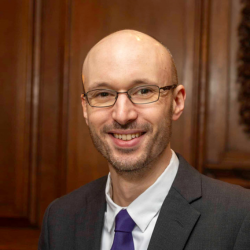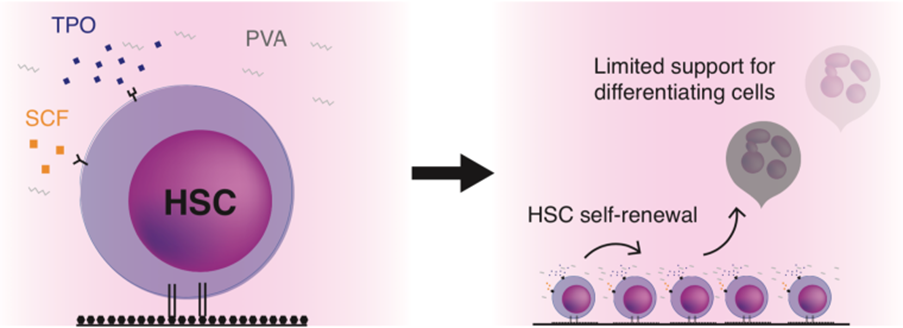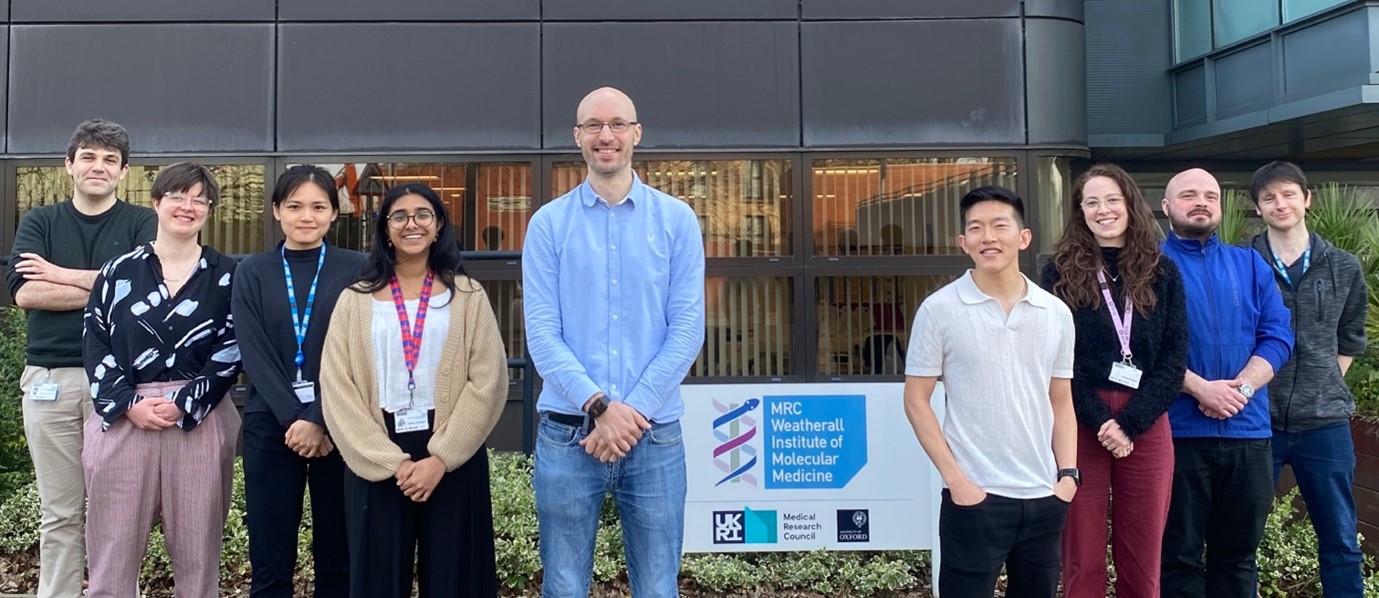Dr Adam Wilkinson
Email: acw63@cam.ac.uk
Laboratory: Cambridge Stem Cell Institute, Jeffrey Cheah Biomedical Centre
Departmental Affiliation: Haematology
Biography
Adam Wilkinson is a Krishnan-Ang Distinguished Scholar and Group Leader in the Department of Haematology and Cambridge Stem Cell Institute. After completing his undergraduate degree at the University of Oxford, he undertook PhD training at the University of Cambridge Department of Haematology with Professor Bertie Gottgens. He then performed postdoctoral training with Professor Hiromitsu Nakauchi at the University of Tokyo and Stanford University with funding from the National Institutes of Health, the Leukemia and Lymphoma Society, Blood Cancer UK, the Japan Society for the Promotion of Science, and Edward P. Evans Foundation. He started his own lab in 2021 at the MRC Weatherall Institute of Molecular Medicine at the University of Oxford with support from the Kay Kendall Leukaemia Fund and the NIHR, and was promoted to Associate Professor in 2023. In 2025, he moved back to Cambridge with support from the Krishnan-Ang Foundation and the Wellcome Trust. Adam joined the Cambridge Stem Cell Institute/Department of Haematology as a Group Leader in 2025.
Research
Haematopoietic stem cells (HSCs) are critical for human health and disease treatment. HSCs are a rare stem cell population that can generate all the cells of the blood and immune system. Many blood and immune cells are short-lived and must be continuously produced in huge numbers (~2 million per second) throughout our lives. Abnormalities in blood production are common and underlie a number of serious human diseases including blood cancers, anaemias and immunodeficiencies. Despite their importance, the paucity of HSCs and lack of tractable ex vivo HSC culture systems means that the mechanisms that regulate HSC activity are incompletely understood.
HSCs are also used in clinic therapy with HSC transplantation therapy currently represents the only curative treatment option for numerous haematological malignancies. Additionally, HSC-based gene therapies are being developed and used to correct various hereditary blood diseases. While potentially curative, these HSC transplantation therapies still represent a high-risk procedure and are not available to all patients. We are aiming to improve the safety, availability, and potential applications of HSC-based therapies through developing new tools to expand and modify HSCs ex vivo.
Towards this goal, we have pioneered new methods to expand transplantable HSCs long-term ex vivo (Wilkinson et al, Nature 2019; Igarashi et al, Blood Advances 2023; Sakurai et al, Nature 2023) and to evaluate the consequences of CRISPR/Cas9 gene editing on functional HSCs in transplantation models (Wilkinson et al, Nature Communications 2021; Becker et al, Cell Stem Cell 2023).
The Wilkinson laboratory is currently leveraging this technology to (1) investigate the molecular regulation of HSC self-renewal and lineage commitment, (2) better understand how HSC dysfunction can drive blood cancer initiation, and (3) develop novel HSC-based therapies.
Funding
The Wilkinson laboratory is funded by a Wellcome Trust Career Development Award, the Krishnan-Ang Foundation, and a European Hematology Association Advanced Research Grant.
Key Publications
- Wilkinson AC, Ishida R, Kikuchi M, Sudo K, Morita M, Crisostomo RV, Yamamoto R, Loh KM, Nakamura Y, Watanabe M, Nakauchi H, Yamazaki S. Long-term ex vivo haematopoietic-stem-cell expansion allows nonconditioned transplantation. Nature. 2019 Jul;571(7763):117-121. doi: 10.1038/s41586-019-1244-x.
- Wilkinson AC, Ishida R, Nakauchi H, Yamazaki S. Long-term ex vivo expansion of mouse hematopoietic stem cells. Nat Protoc. 2020 Feb;15(2):628-648. doi: 10.1038/s41596-019-0263-2.
- Wilkinson AC, Dever DP, Baik R, Camarena J, Hsu I, Charlesworth CT, Morita C, Nakauchi H, Porteus MH. Cas9-AAV6 gene correction of beta-globin in autologous HSCs improves sickle cell disease erythropoiesis in mice. Nat Commun. 2021 Jan 29;12(1):686. doi: 10.1038/s41467-021-20909-x.
- Igarashi KJ, Kucinski I, Chan YY, Tan TK, Khoo HM, Kealy D, Bhadury J, Hsu I, Ho PY, Niizuma K, Hickey JW, Nolan GP, Bridge KS, Czechowicz A, Gottgens B, Nakauchi H, Wilkinson AC. Physioxia improves the selectivity of hematopoietic stem cell expansion cultures. Blood Adv. 2023 Jul 25;7(14):3366-3377. doi: 10.1182/bloodadvances.2023009668.
- Khoo HM, Meaker GA, Wilkinson AC. Ex Vivo Expansion and Genetic Manipulation of Mouse Hematopoietic Stem Cells in Polyvinyl Alcohol-Based Cultures. J Vis Exp. 2023 Feb 10;(192). doi: 10.3791/64791.
- Sakurai M, Ishitsuka K, Ito R, Wilkinson AC, Kimura T, Mizutani E, Nishikii H, Sudo K, Becker HJ, Takemoto H, Sano T, Kataoka K, Takahashi S, Nakamura Y, Kent DG, Iwama A, Chiba S, Okamoto S, Nakauchi H, Yamazaki S. Chemically defined cytokine-free expansion of human haematopoietic stem cells. Nature. 2023 Mar;615(7950):127-133. doi: 10.1038/s41586-023-05739-9.
- Charlesworth CT, Homma S, Amaya AK, Dib C, Vaidyanathan S, Tan TK, Miyauchi M, Nakauchi Y, Suchy FP, Wang S, Igarashi KJ, Cromer MK, Dudek AM, Amorin A, Czechowicz A, Wilkinson AC, Nakauchi H. Highly efficient in vivohematopoietic stem cell transduction using an optimized self-complementary adeno-associated virus. Mol Ther Methods Clin Dev. 2025 Feb 21;33(1):101438. doi: 10.1016/j.omtm.2025.101438.




